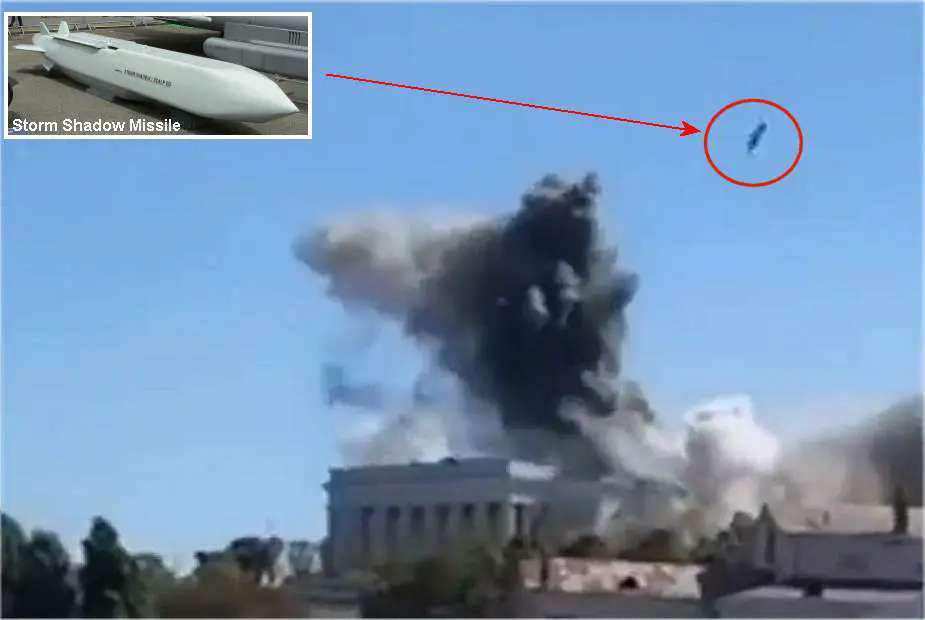Breaking news
German chancellor Olaf Scholz discloses British military assistance in Ukrainian missile operations.
Germany faced allegations of a “flagrant abuse of intelligence” after it was revealed that British soldiers were aiding Ukrainian forces in deploying long-range Storm Shadow missiles, as reported by Joe Bars in The Telegraph and Alessandra Scotto di Santolo in the Daily Express, hereunder referred to.
Follow Army Recognition on Google News at this link

Ukraine used Storm Shadow/SCALP cruise missiles to target the Russian Black Sea Fleet's headquarters in Crimea (Picture source: video footage social network)
German Chancellor Olaf Scholz, on February 26, stated that Germany would not send Taurus missiles, equivalent to the British/French Storm Shadow/SCALP, to Ukraine, arguing that such an action would necessitate ground support by soldiers and could potentially draw Germany into becoming a combatant in the conflict. Scholz's refusal was predicated on the involvement of British and French soldiers with their missile systems and the implications it might have for Germany's involvement in the war.
Tobias Ellwood, the former chairman of the Commons Defence Committee, criticized Germany's exposure of UK support in Ukraine as a deliberate diversion from Germany's own reluctance to provide long-range missile assistance to Ukraine. Ellwood suggested that Germany's actions could be exploited by Russia to intensify the conflict.
In response to Scholz's comments, the British Government confirmed on February 27 the presence of a "small number" of British soldiers in Ukraine, mainly engaged in medical training. The British Ministry of Defence deferred inquiries regarding the Storm Shadow missiles to Kyiv, emphasizing that the operation and targeting of these missiles are under the purview of the Ukrainian armed forces.
The controversy also drew criticism from German opposition figures. Norbert Rottgen, a senior member of Angela Merkel’s former ruling party, the CDU, labeled Scholz's remarks about British and French involvement in missile operations as "completely irresponsible."
Britain's role in providing intelligence for Russian targets and the extent of its support on the ground for Ukrainian troops using British-supplied missiles remains somewhat opaque. Following the disclosure of British military involvement, there was additional scrutiny over UK special forces' activities in Ukraine, which had been previously reported but not officially acknowledged. This includes training Ukrainian troops in Kyiv and the presence of British elite forces as part of a larger contingent than any other ally, as revealed by leaked U.S. intelligence and reported by Declassified.
Reports also highlighted the training of President Zelensky’s bodyguards by Britain’s Special Air Service (SAS) and the involvement of NATO soldiers, including British forces, in various capacities since the start of the conflict. This involvement has raised concerns over the potential entanglement of NATO soldiers in the invasion and has prompted calls for their withdrawal, although some forces remained to assist in areas like Kharkiv and in training Ukrainian units.
The disclosures and reports underscore the complex and sensitive nature of foreign military support in Ukraine, highlighting the balance between aiding Ukraine and the risk of escalating involvement in the conflict. The role of UK special forces, the lack of parliamentary oversight, and the strategic implications of such support continue to be subjects of significant discussion and concern.
Defense News February 2024



















